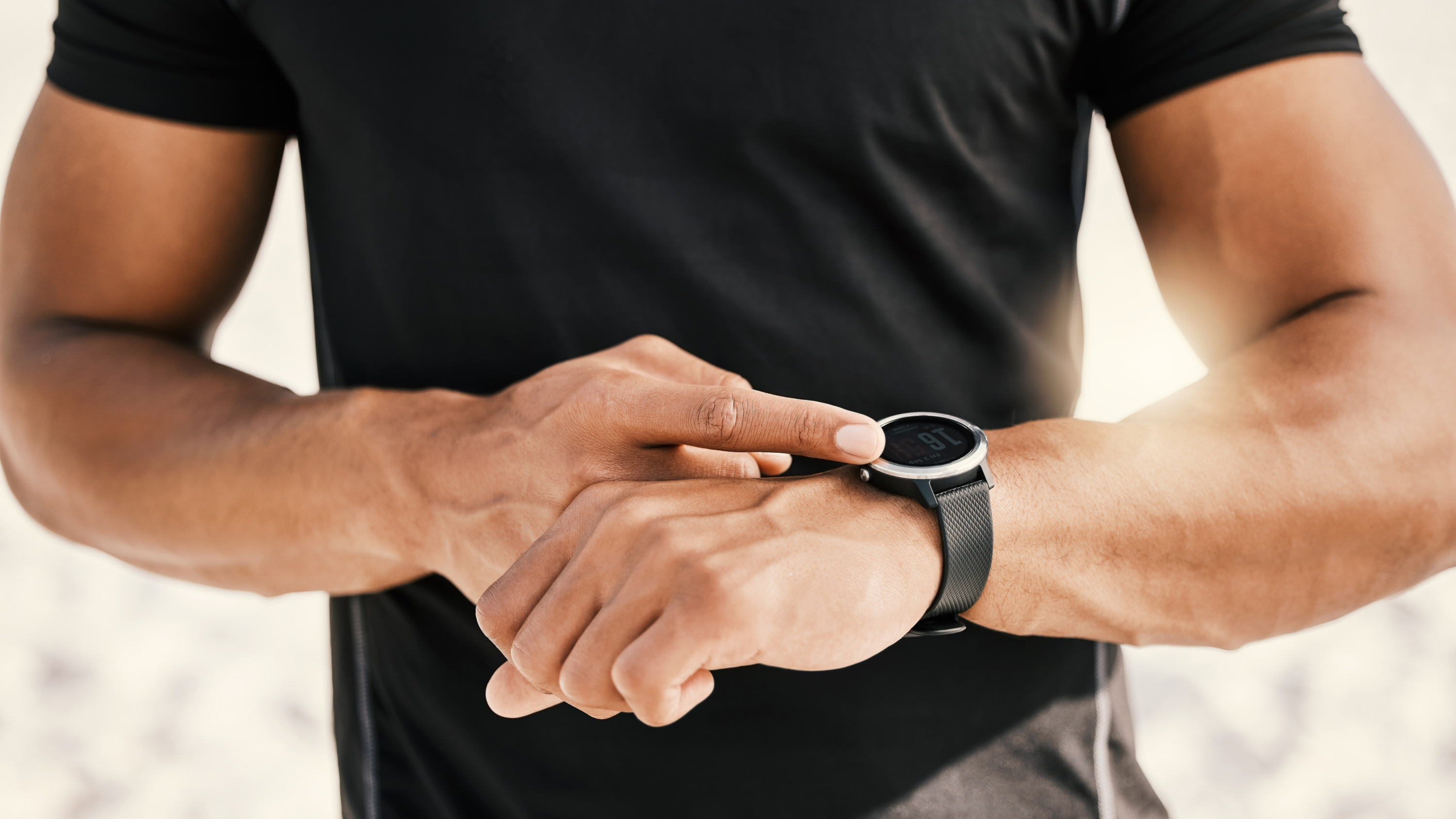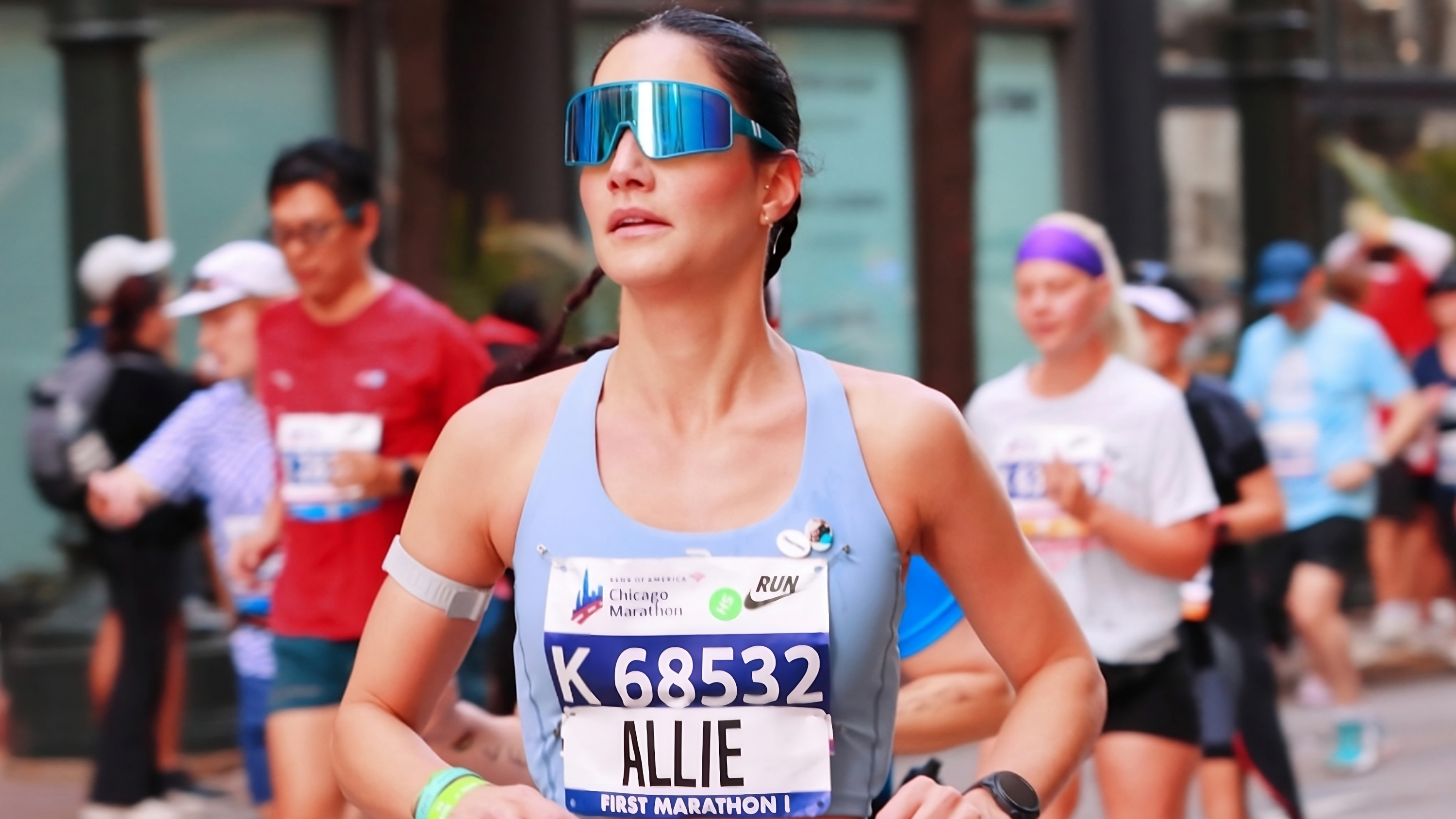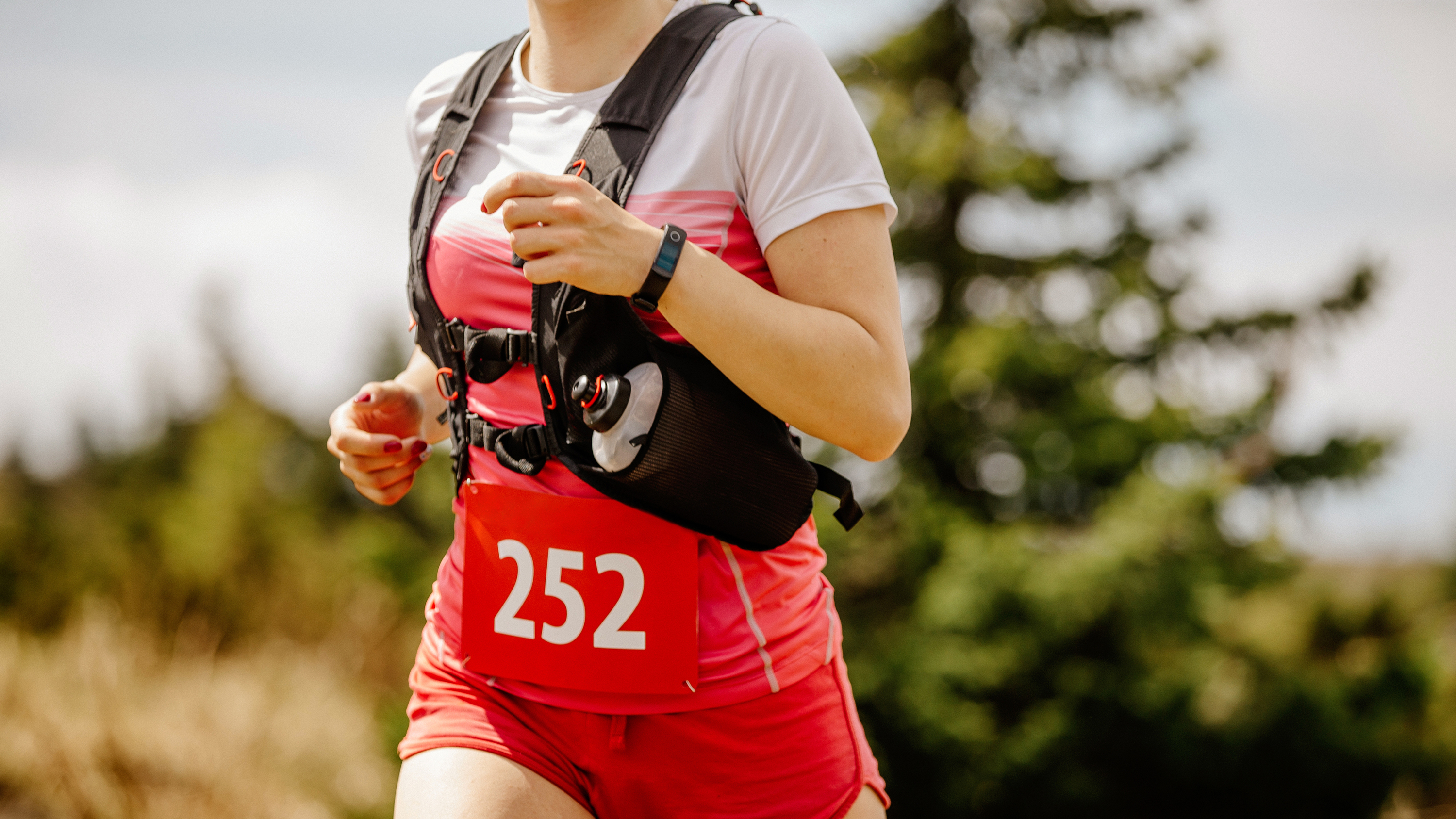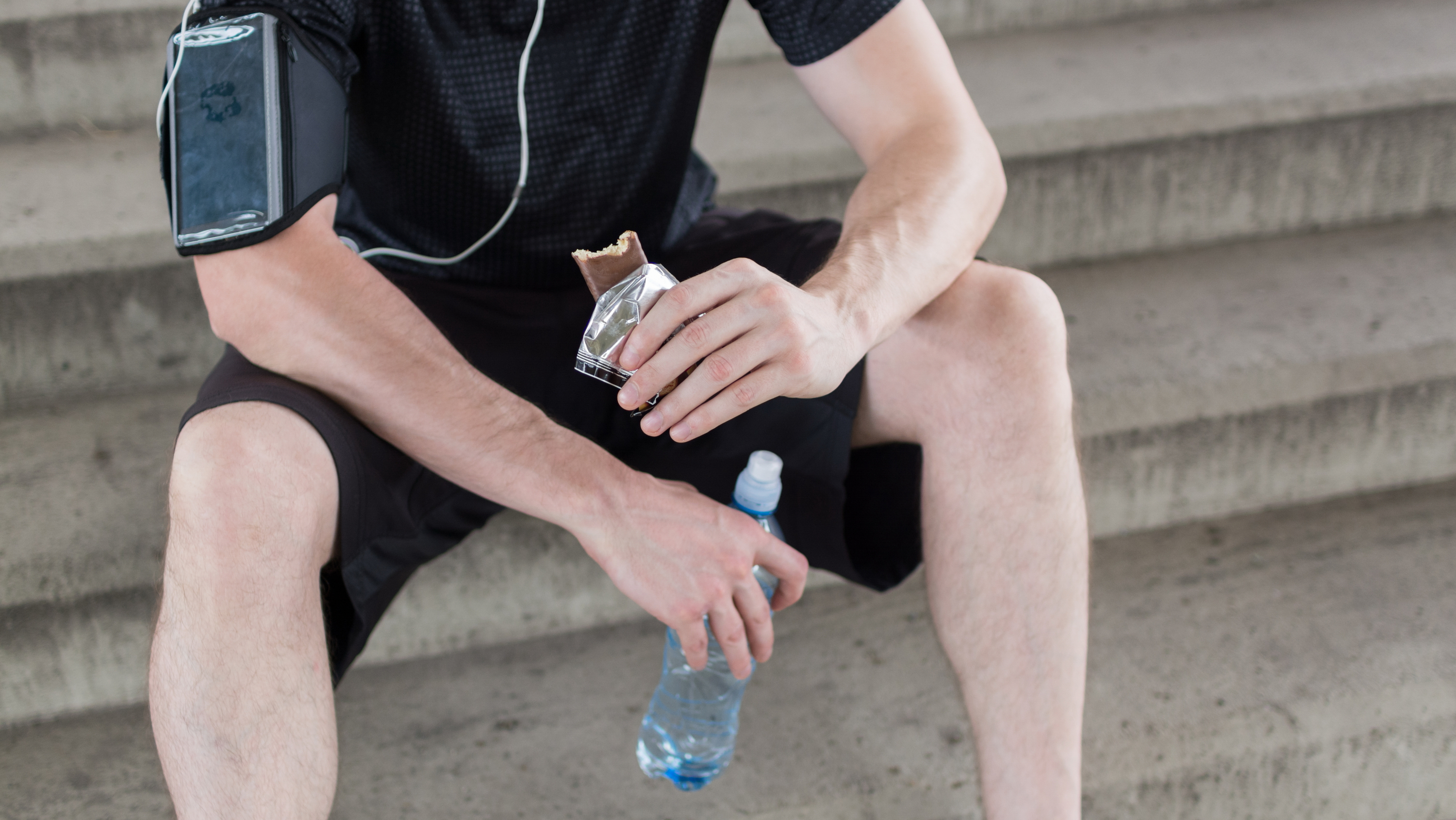Running your first marathon? Here are 9 essential things to pack for race day
What to bring for before, during & after the race.

If marathon training teaches you anything, it’s that prep is everything. From mapping out long run training routes to finding the perfect running shoes and figuring out your fuelling strategy, there’s a lot to think about. Race day is no exception. You’ll need to pack everything you need for before, during, and after the marathon.
Sure, you may have a mental checklist in place, but race day nerves are real. Add in an early start, pre-race breakfast, and travel to the start line, and it’s alarmingly easy to forget even the most obvious things. I’ve done it myself, left behind my best running watch and those tiny but crucial safety pins for my bib.
I ran my first marathon last year, and I’m running the London Marathon this Sunday, so this list is based on what I’m packing now, having learned from experience.
So here it is, a marathon packing list designed to bring you peace of mind, keep you organized, and help you focus on what really matters, crossing that finish line.

Jessica is running the TCS London Marathon 2025 with a place provided by Radox. She has been using Radox shower gel and bath soak as part of her training to help her relax and recover. Her marathon coverage remains independent and based on her own experience.
Marathon gear checklist
Most marathon events offer a bag drop and will transport your gear from the start to the finish line, so it's a good idea to choose a lightweight, secure bag that’s easy to identify. Below, you’ll find everything you’ll want to consider packing in that bag.
1. Race bib, safety pins & participant Info
Don’t leave the basics to chance. Make sure you have your race bib and get it packed inside your bag with a bundle of safety pins. Four safety pins is plenty, but it's good to have extras in case you drop or lose any or, if any friends or fellow participants need some.
It's also a good idea to download the participant guide and course map to your phone before your marathon day, as Wi-Fi might be spotty on race day, and you'll want all key info at your fingertips.
Sign up to get the BEST of Tom's Guide direct to your inbox.
Get instant access to breaking news, the hottest reviews, great deals and helpful tips.
2. Running watch or GPS device

One of the best running watches is a race-day game-changer. The day before your marathon, you'll want to make sure it’s fully charged, synced to your pace plan (if following one), and set up to track your splits (if you care to see your splits). Even if you’re running for fun, it’s great to capture the effort.
Just a heads-up: your GPS might get a little jumpy in crowded areas or under tall buildings, but don’t panic. If you’ve done the training, trust your pacing instincts and run by feel. You’ve got this.
If you're using one of the best Garmin watches, here's how to set up PacePro ahead of race day.
3. Weather-appropriate layers

Check the forecast and plan accordingly. If the forecast is saying rain you should pack a lightweight rain jacket or poncho to keep you dry before and after the marathon. Alternatively, there could be glorious sunshine forecasted for the day and in that case one of the best running hats or a pair of the best running sunglasses will help in the sun.
Things can get cold between ditching your bag and actually starting the marathon, so you might want to pack a jumper and some joggers that you can take off before you head over the start line. Many events let you discard them at a designated spot near the start line and they are then donated to charity.
4. Anti-chafe & personal toiletries
Chafe cream, plasters, lip balm, tissues, deodorant and sanitary products are small but mighty. Apply anything you need before you leave the house, and stash any travel sizes for touch-ups or emergencies.
5. Fuel & hydration
Plan to bring whatever fuel you’ve trained with, whether that’s energy gels, chews, sweets or a hydration mix. Even if the course has aid stations, having your own stash is smart if you want to avoid any tummy troubles from unfamiliar brands mid-run.
6. Running belt or vest
Wearing one of the best running belts or lightweight running vests during a marathon to stash essentials like fuel, a small water bottle, tissues or your phone can be really helpful. It’s especially useful if you don't want to solely rely on the event-provided hydration stations or simply want easy access to fuel.
While some runners prefer to go without the extra weight, if you’ve trained with a belt or vest and it gives you confidence, stick with what works for you.

7. Phone, earphones and power bank
Your phone can play a big role on race day, whether it’s for music, race info, tracking your run, or helping you find your supporters after the finish. If you plan to carry it with you during the marathon, make sure it’s fully charged and well protected. Consider packing a charged power bank in your drop-off bag in case your battery runs low and you need to charge it to help find your loved ones after you are done.
Some events discourage earphones, but if you’ve trained with music or followed a plan that includes audio cues, you might struggle without them. Do what’s right for you, just be sure to check the event’s rules ahead of time.
8. Post-race comfort kit
After the race, your body will want warmth and comfort when it starts to cool down. Pack a change of clothes (including warm layers), a fresh pair of socks and comfy shoes, a towel, and a plastic bag for sweaty kit.
9. Snacks

Once you’ve crossed the finish line, celebrate with a recovery snack you’ll actually enjoy, think something salty like pretzels or chips, a protein bar or a sweet treat. It won’t fully refuel you, but it’ll tide you over until you reunite with friends or family and head off for a well-earned victory meal. Some brands and local spots offer freebies to marathon finishers, so check ahead to see if any perks are available around the location of your race.
Finally, everyone prepares differently, so try not to compare your setup to what other runners are or aren’t carrying on the day. Stick with what feels right for you.
If you're after more marathon tips and inspiration, read about how my colleague Nick Harris-Fry used indoor cycling to help him run a faster marathon, or find out what an endurance sports nutritionist recommends eating before a marathon.
More from Tom's Guide

Jessica has been a fitness writer at Tom’s Guide since 2023, bringing three years of experience writing about health, fitness, and the great outdoors. Her passion for exercise began during her childhood, where she spent weekends hiking and competing in local athletics club events. After earning a master’s degree in journalism from Cardiff University, Jessica found the perfect way to combine her love of storytelling and fitness into a career.
Jessica is passionate about testing fitness gear and tech, using her reviews to help readers make informed buying decisions. She ran her first marathon in April 2024, finishing it in 3 hours and 48 minutes. Through her training, she’s developed a deep understanding of what it takes to grow as a runner, from effective workouts and recovery techniques to selecting the right gear for every challenge.
When she’s not at her desk, Jessica enjoys spending time in the kitchen crafting new recipes, braving cold water swims and hiking.
You must confirm your public display name before commenting
Please logout and then login again, you will then be prompted to enter your display name.
